Tour of Flanders: Patience pays off for Terpstra
'Hopefully I've stolen a few more cycling hearts in Belgium' says Dutch winner
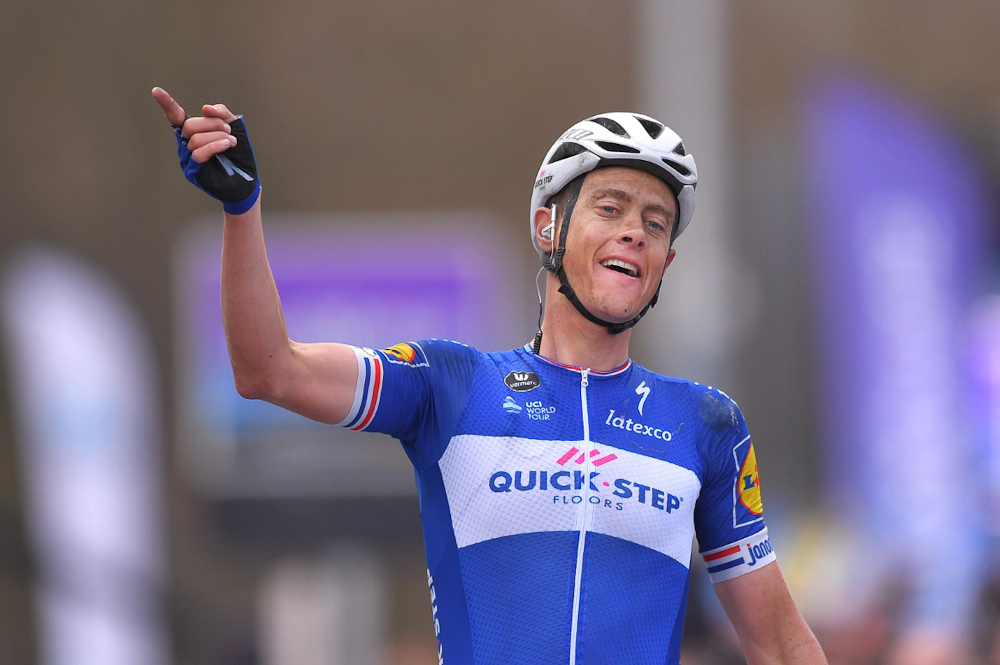
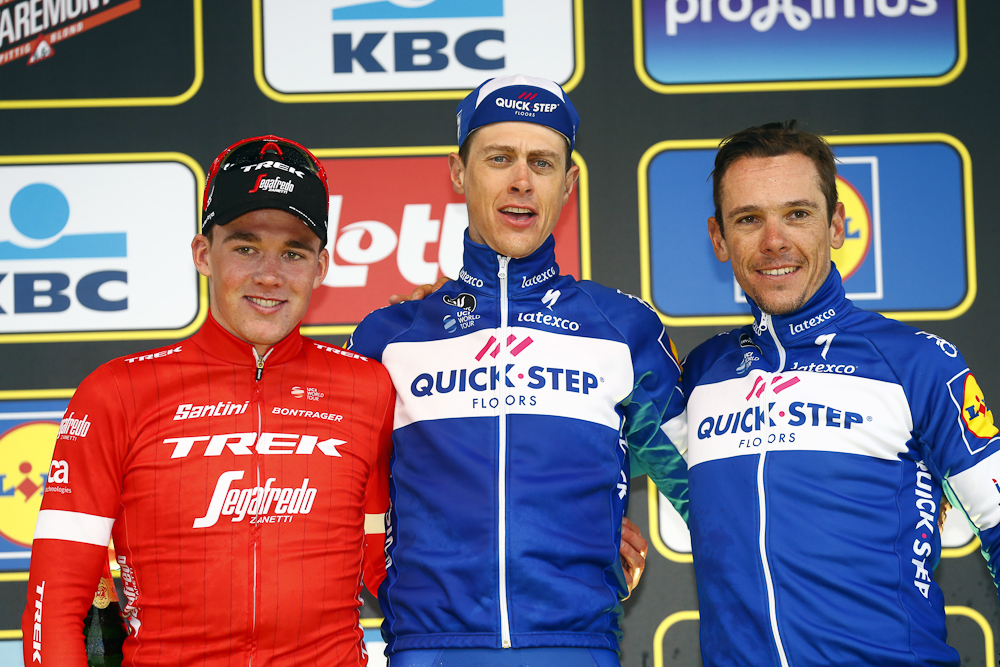
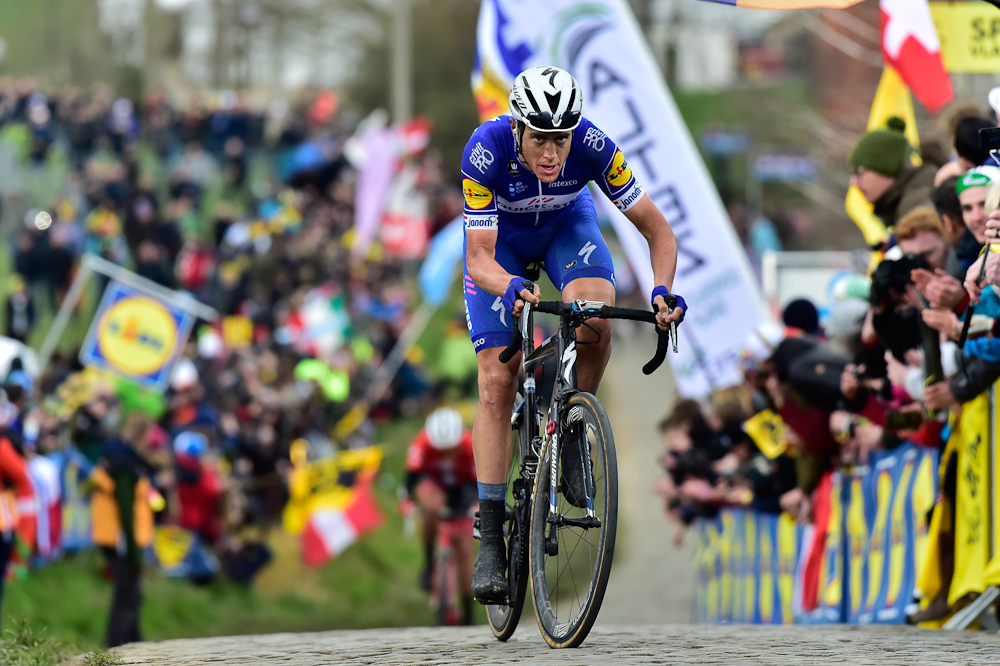
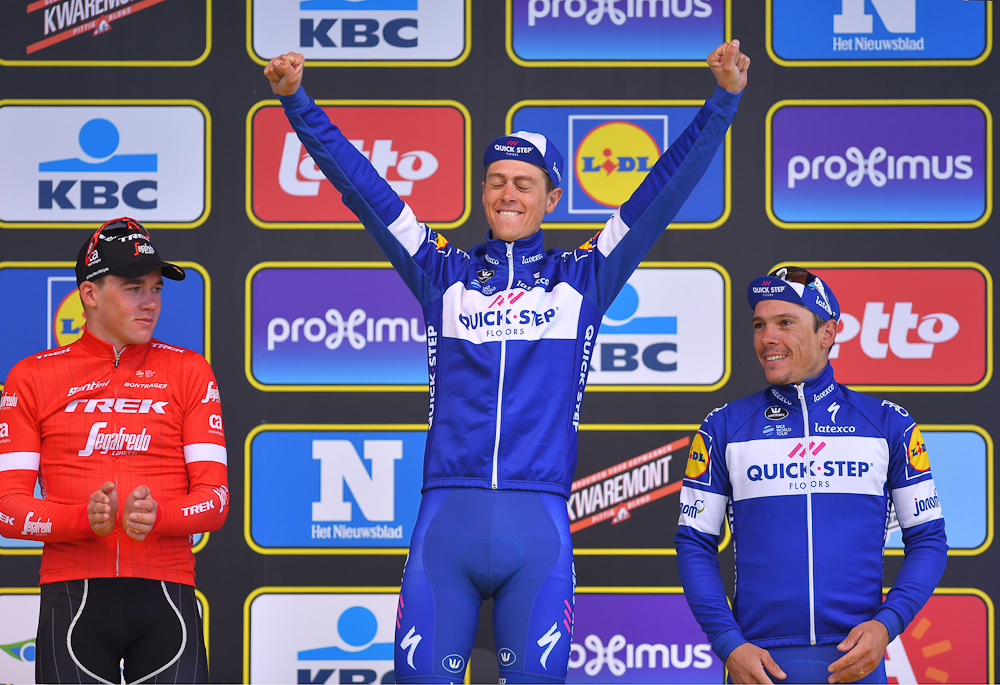
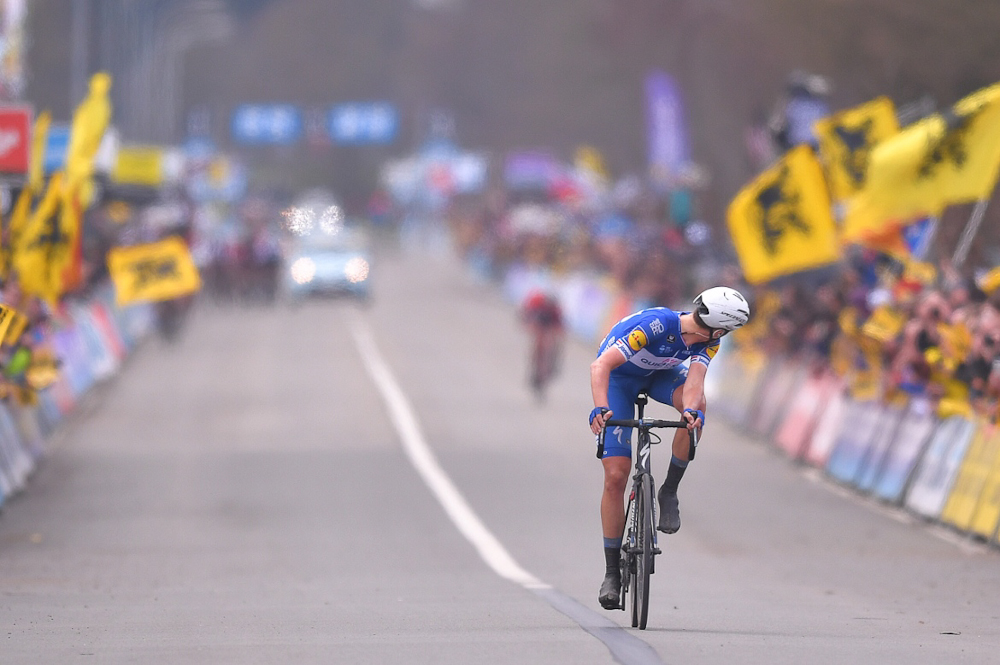
Casual cycling fans might think Niki Terpstra comes across as confident, direct and slightly arrogant. That's the the reason the 33-year-old Dutchman isn't liked as much as some of his Quick-Step Floors teammates, despite the fact that he's been riding for the Belgian team for an eighth consecutive season.
After clinching the win in the Tour of Flanders on Easter Sunday with a superb solo effort, Terpstra hopes to finally have won the hearts of the cycling-loving Belgian fans, who know that only real 'Flandriens' can win both Paris-Roubaix [ as Terpstra did in 2014] and their Ronde. Terpstra tried to lure the fans by performing a few made-up lines on a Flemish tune, in his already typical post-race victory song. He emphasised that he's been waiting on this perfect day for ages, and while waiting he invested a lot in the team.
"It's unbelievable," Terpstra said. "This is so cool. I've always been dreaming about these races - Ronde and Roubaix - and now I've won both. That's just a dream come true."
Terpstra then started his song in Dutch.
"I was building up, I was building up. Blood was getting to my head. It was love, love for cycling," Terpstra sang, and then afterwards explained his new post-race ritual. "Obviously it started in Dwars door Vlaanderen and now it's starting to be a hype. I figured to do something for the Flemish crowd. For some reason, sometimes I'm given a hard time in Flanders. Hopefully I've stolen a few more cycling hearts in Belgium."
Terpstra told reporters that during the race, while he was asking through the radio what his gap was, teammate Philippe Gilbert, who was marking the chase bid and eventually finished third, shouted in Terpstra-style that the Dutchman had to 'go with that banana', a Dutch expression equivalent to the old Nike slogan 'Just do it'.
"I heard that," Terpstra said. "Even those final hectometres took ages. I was completely wasted. When I looked back I realised that I won the Ronde van Vlaanderen. I already won Paris-Roubaix. These were the races that I stayed home for as a kid and dreamed about. It's a massive cliché but it's like that. Well, I've won them. I have to do it this way. I'm not a sprinter."
The latest race content, interviews, features, reviews and expert buying guides, direct to your inbox!
Learning lessons from 2015
Three years ago, Terpstra rode more or less the same finale but ended up in front with fast man Alexander Kristoff. He didn't stand a chance in the sprint and had to settle for second.
"I learned from 2015," Terpstra said. "Back then I should've tried to drop him on the moment where he was digging the deepest. Instead, I allowed him to recover. He was really strong that day, so maybe it wouldn't have been possible to drop him."
Terpstra didn't leave anyone in the front group a chance to recover on Sunday when he bridged to the three leaders and then immediately dropped them. He made his move on a double climb. First, there's the Kruisberg, then a false-flat and then the Hotond. Quick-Step's Zdenek Stybar had been in a move, and when that came back Vincenzo Nibali (Bahrain-Merida) attacked. Terpstra marked the Italian Grand Tour winner and then blasted away on the Hotond.
"That was cool, and it happened uphill," Terpstra said with a laugh when asked about dropping Nibali. "Sometimes you just know that they're decisive moments in the race. You've got to give everything. In 2015 we were riding away on the same section. These climbs perfectly fit into the time range that I can deal with. This winter, Yvan Vanmol told me that I could win the Ronde van Vlaanderen if I would lose a kilogram. He was right."
While Terpstra's lost kilogram doubtlessly helped him propel himself up the hellingen and on to victory, it was his teammates who set up his winning attack and then stifled the chasers who could never get coordinated as they each thought about saving a little to fight off the Quick-Step hangers-on in the finale.
"First, Stybar launched a massive attack. That move was countered. Due to that counter the legs of the rivals were cut off," Terpstra said. "Then Nibali attacked. Then it was up to me to go. When I saw that Nibali was in trouble I decided to go flat out on the Hotond. That was a decision I regretted in the descent of the New Kwaremont because I was battling the wind."
Once Terpstra was alone in between the favourites group and the three leaders, he had a difficult moment in the approach to the final ascent of the Oude Kwaremont.
"I wasn't able to go faster," he said. "These guys were taking pulls to hold me off. I was battling the wind. It's a real shit section to ride alone. I knew that I had to fight. I was a bit pissed because I knew they were giving me a hard time in the descent.
"On the Oude Kwaremont I could tell it cost them a lot of energy. I thought, now you're going to get into trouble. Dylan [van Baarle] and Sebastian [Langvald] are former teammates and good friends, so it makes sense that they were working well together. I think they're nice blokes, but this was a cycling-related matter. Passing them at that phase in the race, on the Oude Kwaremont, that was giving me wings."
Terpstra may have had 'wings' propelling him to the finish, but he still had to deal with Pedersen, who fought his way back to the head of the race.
"Racing in front of this crowd is fantastic. It's the best cycling crowd in the world," Terpstra said of his motivation in the final kilometres. "But then Pedersen came back. I had to dig deep to make him bow."
It wasn't an easy win for Terpstra, even though he briefly thought it was going easier than at E3 Harelbeke, where he soloed away from a select group that included Greg Van Avermaet (BMC Racing), Oliver Naesen (AG2R) and Tiesj Benoot (Lotto Soudal).
"In the E3 Harelbeke I had to dig really deep," he said. "Today seemed to be going slightly easier, until the three final kilometres. Then I realised, 'Shit, I have to go really deep.' I nearly fell to the ground after the race."
Running with the 'wolfpack'
Terpstra explained how the Quick-Step team 'wolfpack' works when there are so many quality riders who can contend for the victories. Too many chiefs can often lead a team astray, but so far this season Quick-Step have managed the personalities and spread the wealth of wins among 10 different riders.
"You've got to be patient," Terpstra said. "You've got to have confidence in yourself and look at the bigger picture. Sometimes you need to invest a lot before you can get a return. You can't be selfish. In fact, you've got to be that selfish that you dare to invest that much in order to get it back one day.
"I’m not the fastest guy, so in order to win a race I need good legs, a fair bit of luck and a good team. Three times I was in the middle of a crash and somehow I was still upright and realising I was lucky. It's got to come together."
Giving and taking, Terpstra said, that's the key.
"I heard through the radio that they were doing a great job for me," he explained. "That provided me with energy, hearing that they were blocking up the road. It's a result of the last few races. Our rivals see that we're walking through fire for each other. They see that we block up the races behind our man up front. It's more and more frustrating for our rivals."
That willingness to 'walk through fire' for each other has paid off well for Quick-Step this year, with the Belgian team having racked up more than 20 wins already this season.
"That's not normal," Terpstra said of his team's rate of success. "We shouldn't forget about that. It's incredibly nice. After Gent-Wevelgem we were a bit annoyed that we didn't win, but we were runner-up and that's nice too. That's what the team stands for: getting the most out of it together, and if you're lucky enough and you've got the legs then you get it back."
Terpstra will be part of Quick-Step's 'give and take' next Sunday at Paris-Roubaix, where he'll line up as a former champion. He'd obviously like to add another cobble trophy to his mantle, and then there's more after that.
"After Paris-Roubaix, I'll do the Amstel Gold Race," he said. "It's always been on my schedule. It's going well. If I can do something to pay back my teammates I'll do it."
When asked if he realised that with his win in Flanders and Roubaix he could be considered among the best classics riders ever, despite claiming in the past that he's not that talented, he briefly brushed off the notion but then allowed it to settle in.
"I haven't realised that yet," he said. "It's cool."